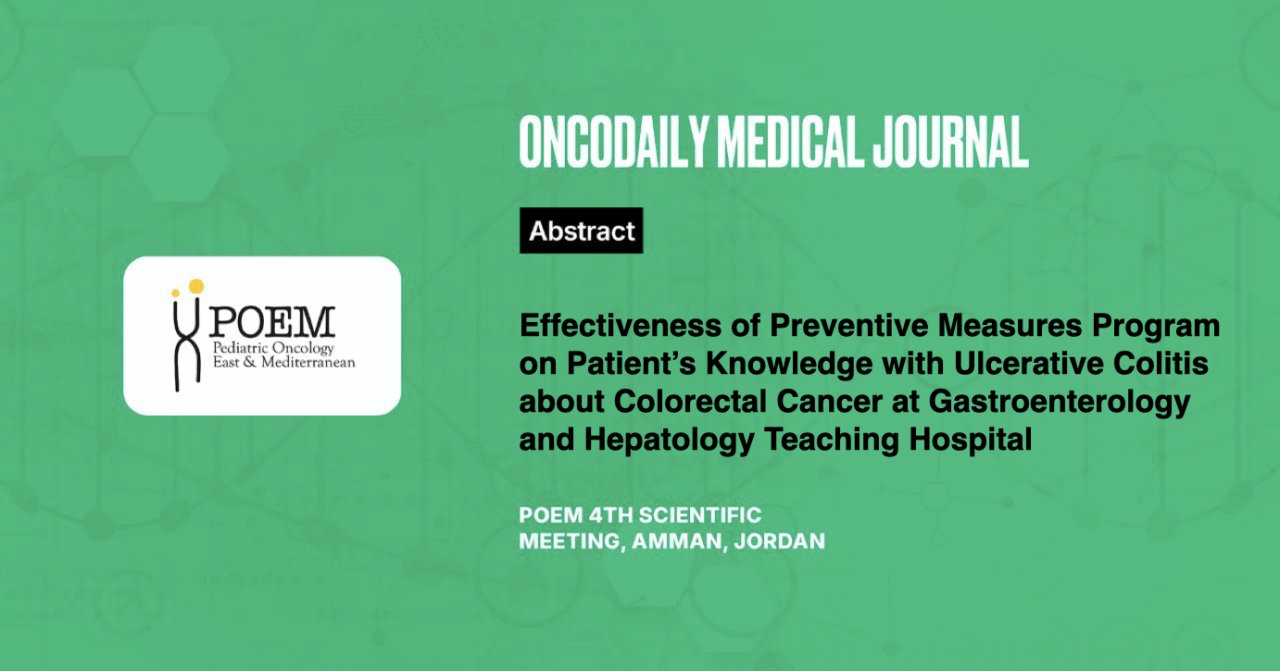Effectiveness of Preventive Measures Program on Patient’s Knowledge with Ulcerative Colitis about Colorectal Cancer at Gastroenterology and Hepatology Teaching Hospital
Abstract
Introduction: Colorectal cancer is the third most common cancer which leading death among men and women worldwide. Diet has a big role to decrease risk of CRC. The present study aims to find out the effectiveness of preventive measures education programs on patients with ulcerative colitis to improve their knowledge to reduce the risk of colorectal cancer.
Methodology: A quasi -experimental design study. The non-probability sampling including 50 patients for study group and 30 patients for control group patients was selected purposely based on the study criteria and after obtaining consent permission from them. The study instrument consists of 6 parts, the first part the Socio-demographic, the unhealthy behaviors, and the medical history. Part two inflammatory bowel disease knowledge self-report questionnaire. Part three the patient adherence for diet questionnaire. Part four the patient adherence for medication questionnaire. Part five assessment of Patients’ stress and fatigue, part six the Stress reduction methods and the patient uses of stress management
Results: The results of the present study shows that there were highly significant differences between pre and post implementation of preventive programs at p-value= 0.05. There were high significant differences between the effectiveness of instruction programs regarding adherence of patients for diet and medication, significant for methods of stress reduction, and significant regarding adherence of patients for stress management with patient age. In addition, there was a highly significant relationship between the effectiveness of the program and patient age, social status, level of education, and significant relationship between the effectiveness of the program and monthly income, and residency.
Conclusion: The preventive program has a positive effect on case group study to improve patient’s knowledge, adherence to a balanced diet and medication to avoid deterioration of patient’s health status, and then to reduce the incidence of colorectal cancer.





